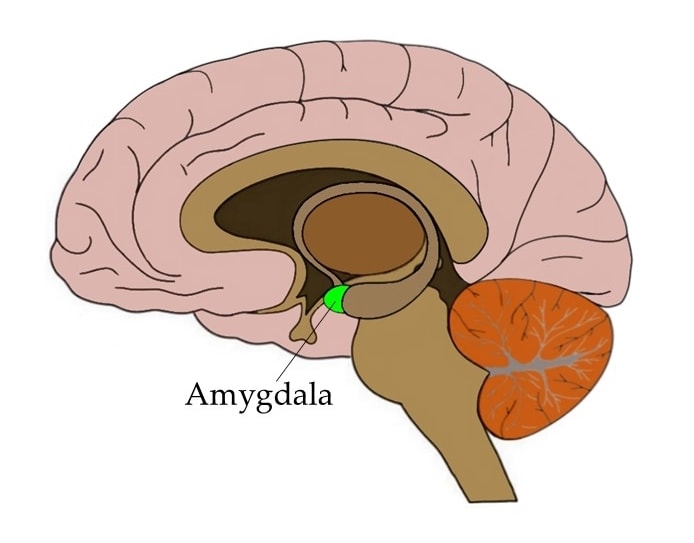If it seems like your brain turns to mush during an orgasm the amygdala the part of the brain involved in fear and anxiety essentially shuts down when women have an orgasm

The Fascinating Link Between Orgasm and the Amygdala

We’ve all experienced it - that incredible rush of pleasure and release that comes with an orgasm. It’s a moment of pure bliss that can make us forget about everything else in the world. But have you ever wondered what actually happens in your brain during this intense experience?
According to recent research, when women have an orgasm, the amygdala, the part of the brain involved in fear and anxiety, essentially shuts down. This fascinating discovery sheds new light on the intricate workings of the brain and how it responds to sexual stimulation.
The amygdala is a small almond-shaped structure deep within the brain, known for its role in processing emotions, memory, and fear. It helps us recognize potential threats in our environment and triggers the “fight or flight” response when necessary. However, during an orgasm, this powerful center of fear and anxiety appears to take a back seat.
Researchers have found that the amygdala’s activity decreases significantly during sexual arousal and reaches its lowest point during orgasm. This reduced activity suggests a state of relaxation and a temporary release from fear and stress. It allows individuals to fully immerse themselves in the pleasurable sensations of the moment, unburdened by any negative thoughts or worries.

The exact mechanisms behind this phenomenon are still not fully understood, but it may have to do with the release of certain hormones and neurotransmitters during orgasm. Dopamine, oxytocin, and endorphins flood the brain, creating a sense of euphoria, bonding, and pain relief. These neurochemicals may contribute to the temporary suppression of the amygdala’s activity, leading to a heightened state of pleasure.
Understanding how the brain responds during orgasm is not only intriguing from a scientific perspective but also has practical implications. This knowledge can help researchers and healthcare professionals better understand sexual dysfunctions and develop more effective treatments.
From an individual’s perspective, knowing that the amygdala shuts down during orgasm can be empowering. It highlights the potential of sexual pleasure to momentarily free us from the shackles of anxiety and fear. It emphasizes the importance of taking time for self-care and exploring our own bodies in pursuit of a healthier and happier life.
In conclusion, the amygdala’s temporary shutdown during orgasm offers a captivating insight into the intricate workings of the brain. It reveals the deeply intertwined relationship between our emotions, pleasure, and fear. By unraveling the secrets of the brain’s response to orgasm, we take one step closer to understanding our own bodies and enjoying the full spectrum of human experience.
Source: ScienceAlert
Tags
Share
Related Posts
Quick Links
Legal Stuff

